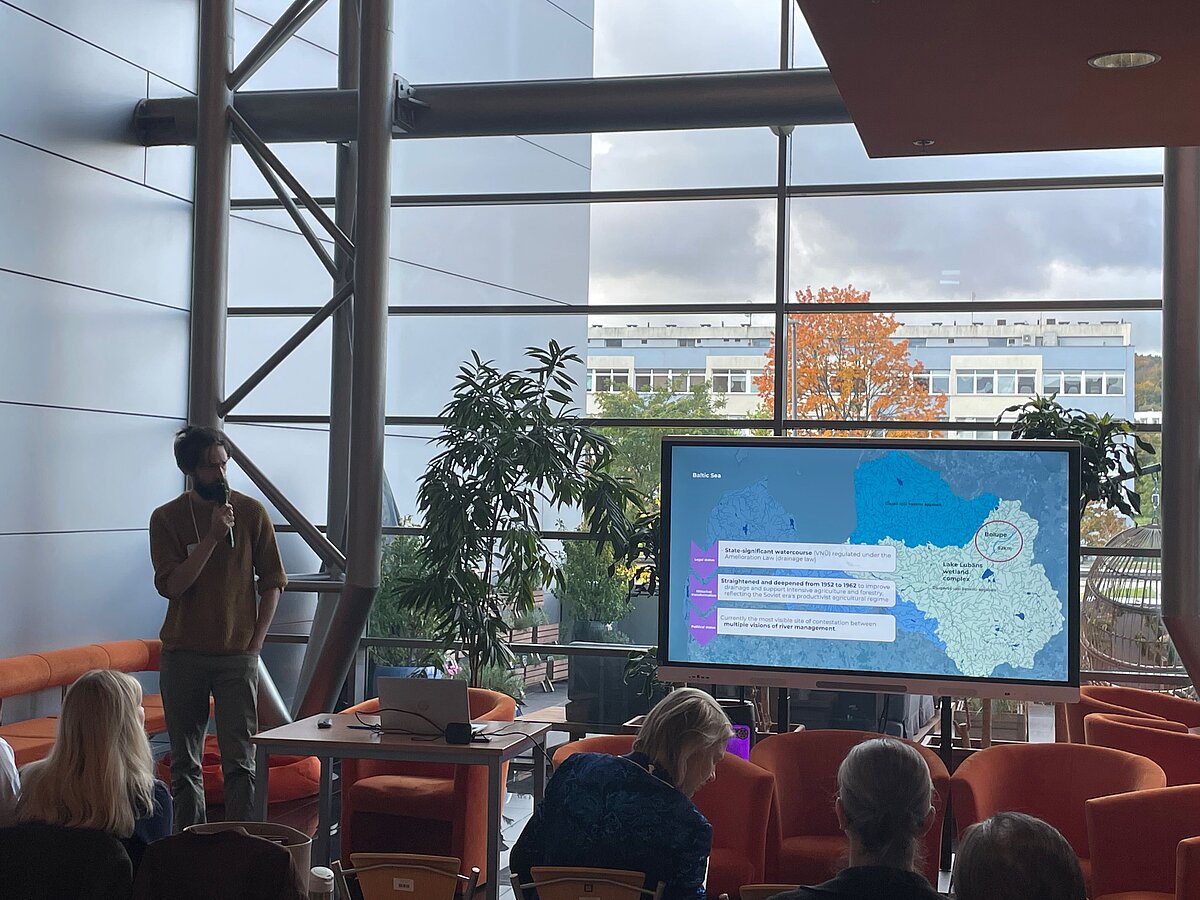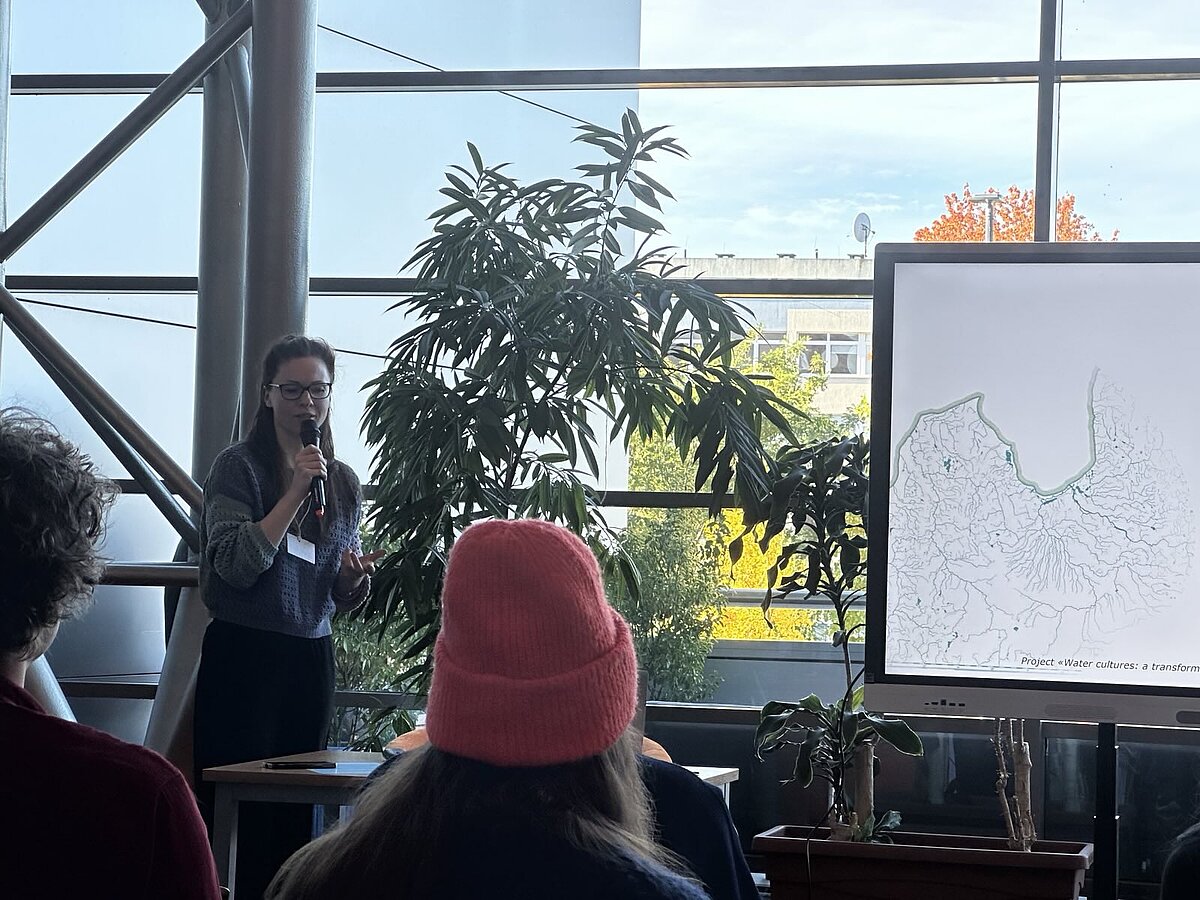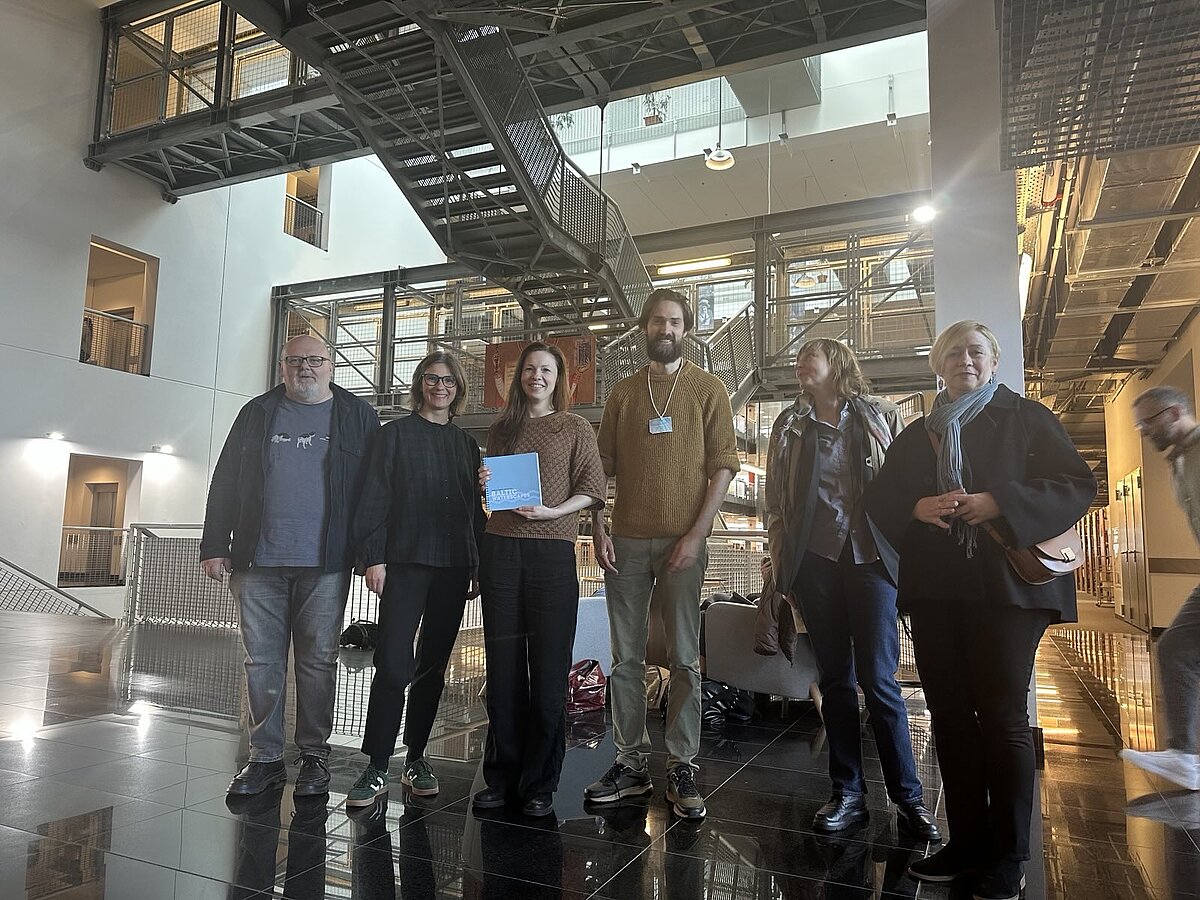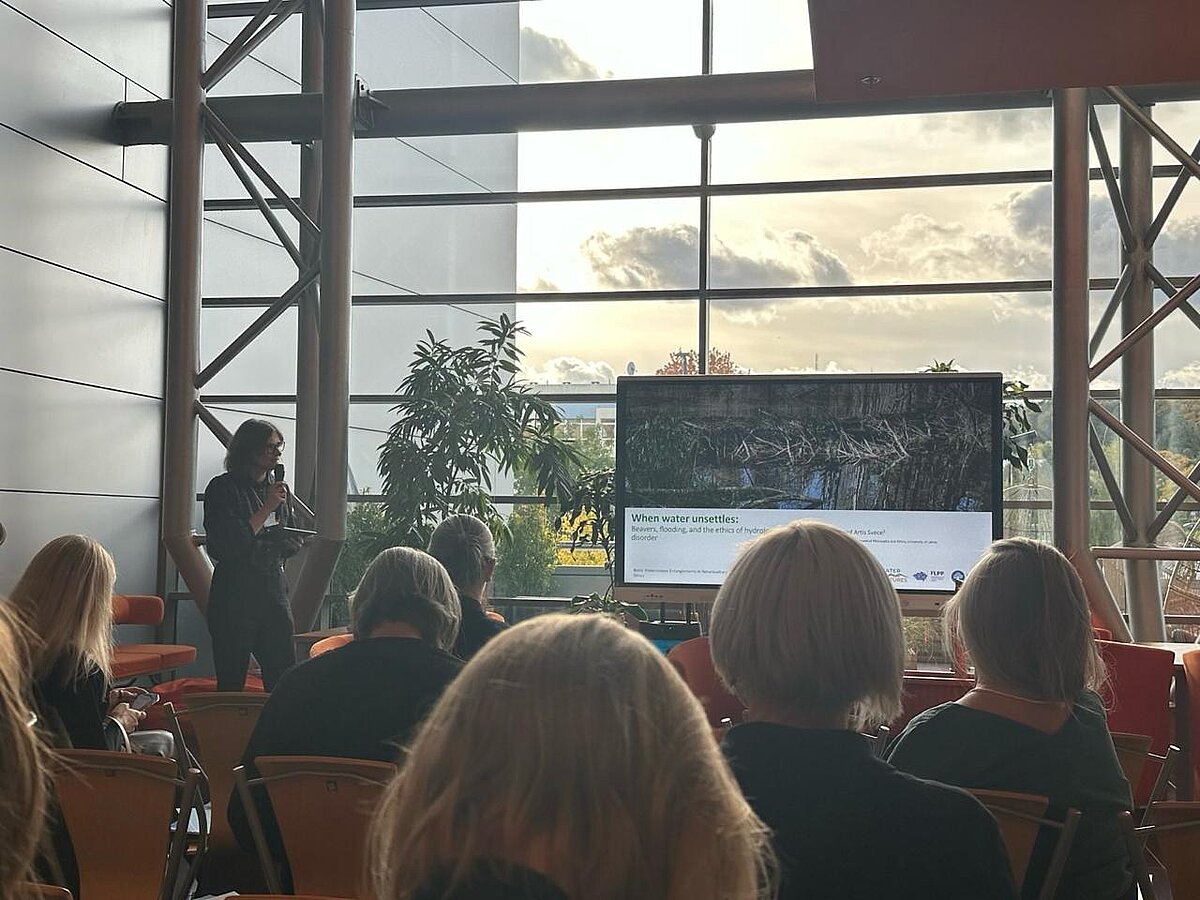
The event brought together researchers from across the Baltic region to discuss water as an ecological, cultural, and political agent, and to explore how waterscapes are shaped by human histories, environmental change, infrastructures, and multispecies coexistence. Discussions emphasized that waters are not only life-sustaining environments and regulated resources, but also sites of tension, transformation, and negotiation.
Latvia and the project “Water Cultures: A Transformative Approach to Sustainable Human–Water Relationships” (LZP-2023/1-0248) were represented by the following contributions:
- Kristīne Krumberga & Kārlis Lakševics
Techno-Mediated Encounters with Riverworlds: Ecological Sensibility in Recreational Paddling - Anita Zariņa & Artis Svece
When Water Unsettles: Beavers, Flooding and the Ethics of Hydrological Disorder - Kārlis Lakševics
Resilience for Whom? The Contested Infrastructurings of the Bolupe River
Participation in this symposium strengthens international collaboration in the Baltic Sea region and contributes to the ongoing development of the Water Cultures research direction in Latvia.
The book of abstracts is available here

 CONFERENCE
CONFERENCE

